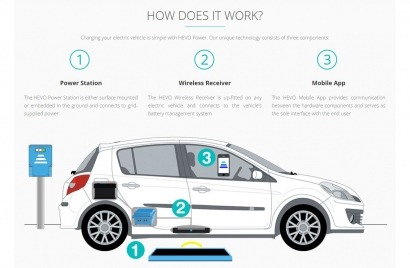
General Motors Co. had set a goal of having some 500,000 of its electric vehicles on the street by 2017.
But last week, while not saying exactly how many fewer EVs it expects to sell in the next two years, GM said its forecast was overly optimistic.
It blamed this on dramatically lower gasoline prices in the states - - according to the Automobile Club of America, Monday's average fuel prices in the US stood at $2.65 for a gallon of regular; $2.87 for mid-range; $3.05 for premium and $2.85 for diesel -- and on a surge in model offerings from other automakers.
"GM is committed to electrification," the automotive giant said on Thursday. "But consumer demand for these vehicles has not kept up with our initial projections."
Perhaps the biggest illustration of its continued commitment to EV/hybrid sector is GM's ongoing development of the all-electric vehicle Chevrolet Bolt, with an electric driving range of 200 miles and a sticker price of about $30,000 after a federal tax rebate.
Production of the Blot is expected to begin in 2016.
The company is also introducing a redesigned version of its Chevy Volt plug-in hybrid this fall. The redesign not will not only increase its electric driving range by some 50 miles, but will extend to its price tag, the new Volt costing about $1,100 less that the current model.
General Motors announced its projections for 2017 three years ago, about the same time the Obama Administration said it wanted to see about a half million electric and hybrid vehicles on the road by the end of this year.
GM certainly did its part. The trend line for sales since then has been positive with the number of electrified GM vehicles sold reaching 180,834 -- just shy of 30,000 more GM EVs that were on the road in 2013.
In the US consumers have been more concerned with fuel efficiency. They've also been slow to embrace pricier EVs at a time when the nation's charging infrastructure remains largely undeveloped.
Plenty of entrepreneurs, of course, are looking to do something about that. One of those is Jeremy McCool, whose Brooklyn, N.Y. based company, Hevo Power, is looking to make electric vehicle ownership a more sensible option for city apartment dwellers.
One of the innovative approaches this start-up has developed is a wireless charger designed to look pretty much like an ordinary manhole cover, an already ubiquitous piece of the urban environment.
Another innovation the company has devised is a so-called "green loading zone." As conceived by Hevo Power, electric trucks making deliveries to businesses will recharge wirelessly while they are parked at a destination. The company plans a test of the concept at New York University this fall.
But there's another element to all this -- the support of state and local governments who are trying to make America's cities ever more livable. For example, Hevo Power developed its wireless charging platform concept with a $240,000 grant from the State of New York and Gov. Andrew Cuomo has been a strong ally of the renewables community.
In 2013, Cuomo unveiled ChargeNY, which has among its goals the installation of 3,000 public charging stations on state roads by 2018.
Closer to Hevo Power's headquarters, New York City Mayor Bill de Blasio has mandated that at least 20 percent of new off-street parking built within the city be Charger-ready.
The de Blasio administration has also been aggressively growing its own use of electric vehicles.
Of course, there's another side to government involvement in the EV sector. How to incorporate them into municipal revenue streams. While Americans are loathe to pay anything they perceive as "another tax," the fact that a government sees EV's as an important revenue streams can be taken as a vote of confidence in the sector.
A bill currently before the state of Oregon's House of Representatives would require the owners of electric vehicles -- who obviously won't pay fuel taxes -- to pay a road-usage fee instead. The bill isn't expected to pass this session, but its suggest lawmakers in the US see a big future in a sector that still just a little slow to gather steam.
For additional information:

